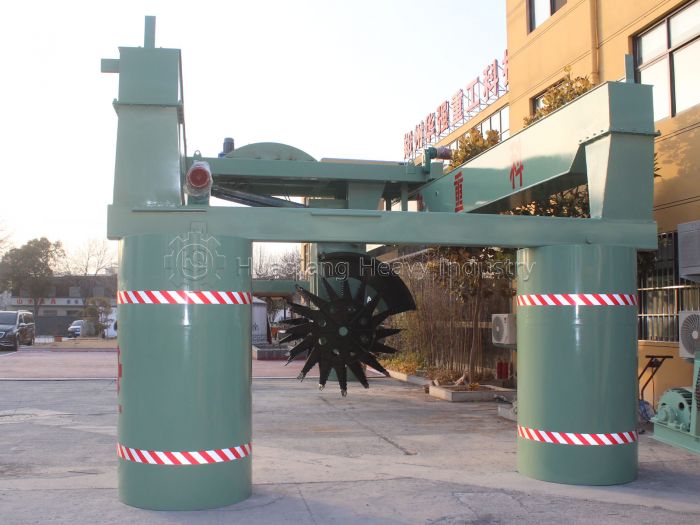In today's era of deep integration between environmental protection and agriculture, the large wheel compost turner, with its significant advantages, has become a core piece of equipment driving industrial upgrading, benefiting multiple key areas such as resources, efficiency, and the environment.

Its most core benefit is achieving efficient resource recycling. Rural areas generate large amounts of livestock and poultry manure and straw annually, which can easily cause pollution if not properly handled. The large wheel compost turner, through its high-strength turning teeth, thoroughly mixes and crushes these wastes, transforming them into high-quality organic fertilizer through aerobic fermentation. Taking a livestock farm as an example, after introducing this equipment, waste can be transformed into "ecological nutrients," constructing a closed loop of "waste - organic fertilizer - crops," increasing resource utilization to over 90%, and contributing to sustainable agricultural development.
Improved production efficiency is another major highlight. Traditional compost turning equipment relies on manual labor, resulting in shallow turning, uneven fermentation, and a long composting cycle of 3-6 months. The large wheelcompost turner, with its large rotating disc, can quickly break up the material's compacted layer, allowing air to penetrate deep into the pile, shortening the composting cycle to 20-30 days. Meanwhile, its tracked design allows for flexible movement in complex terrains, with a single turning depth of 1.5-2 meters and a maximum width of 10 meters, handling over 500 tons per day, meeting the needs of large-scale operations.
In terms of environment and cost, it offers dual benefits. Environmentally, it reduces PM2.5 pollution from straw burning and soil and water pollution from manure seepage. In one county, the agricultural non-point source pollution rate decreased by 35% after the equipment was introduced. Cost-wise, automated operation significantly reduces labor; a production line that previously required 8 people now only needs 2 for monitoring. The intelligent monitoring system precisely controls parameters, avoiding energy waste and reducing operating costs by over 40%.
In the context of "dual carbon" (carbon dioxide, carbon sequestration, and carbon emissions) and rural revitalization, the large wheel compost turner both reduces environmental burdens and empowers agriculture, becoming a crucial link between these two sectors and continuously injecting momentum into the development of green industries.